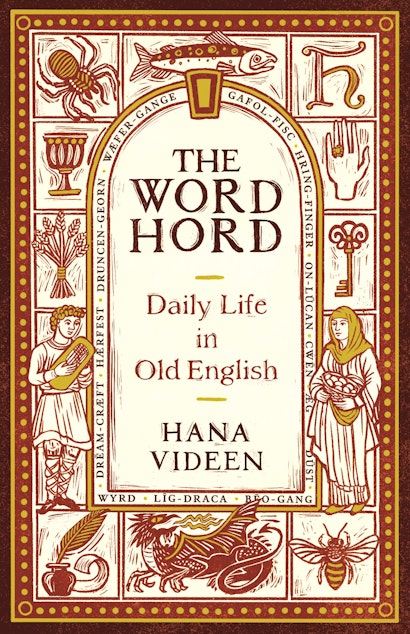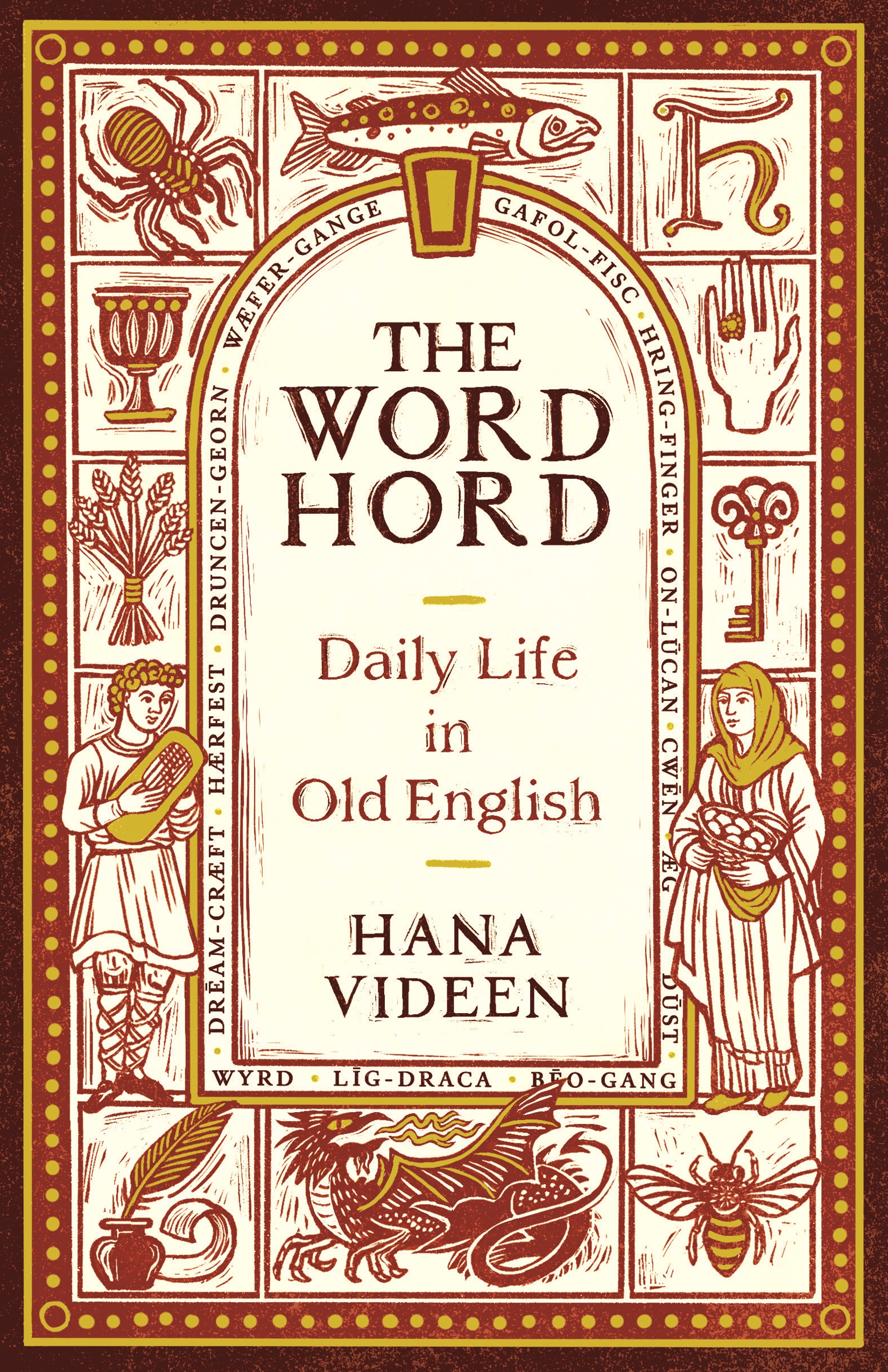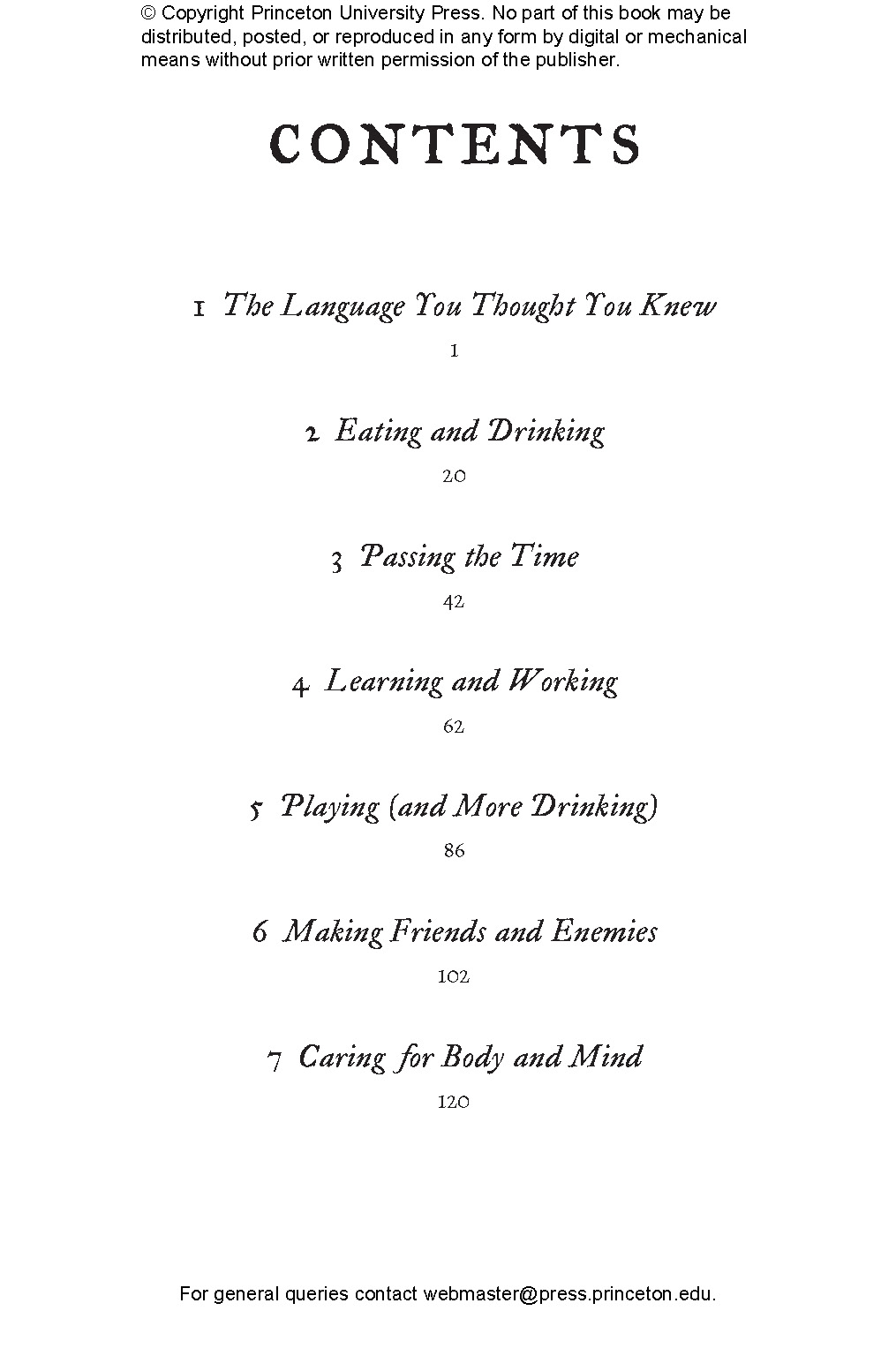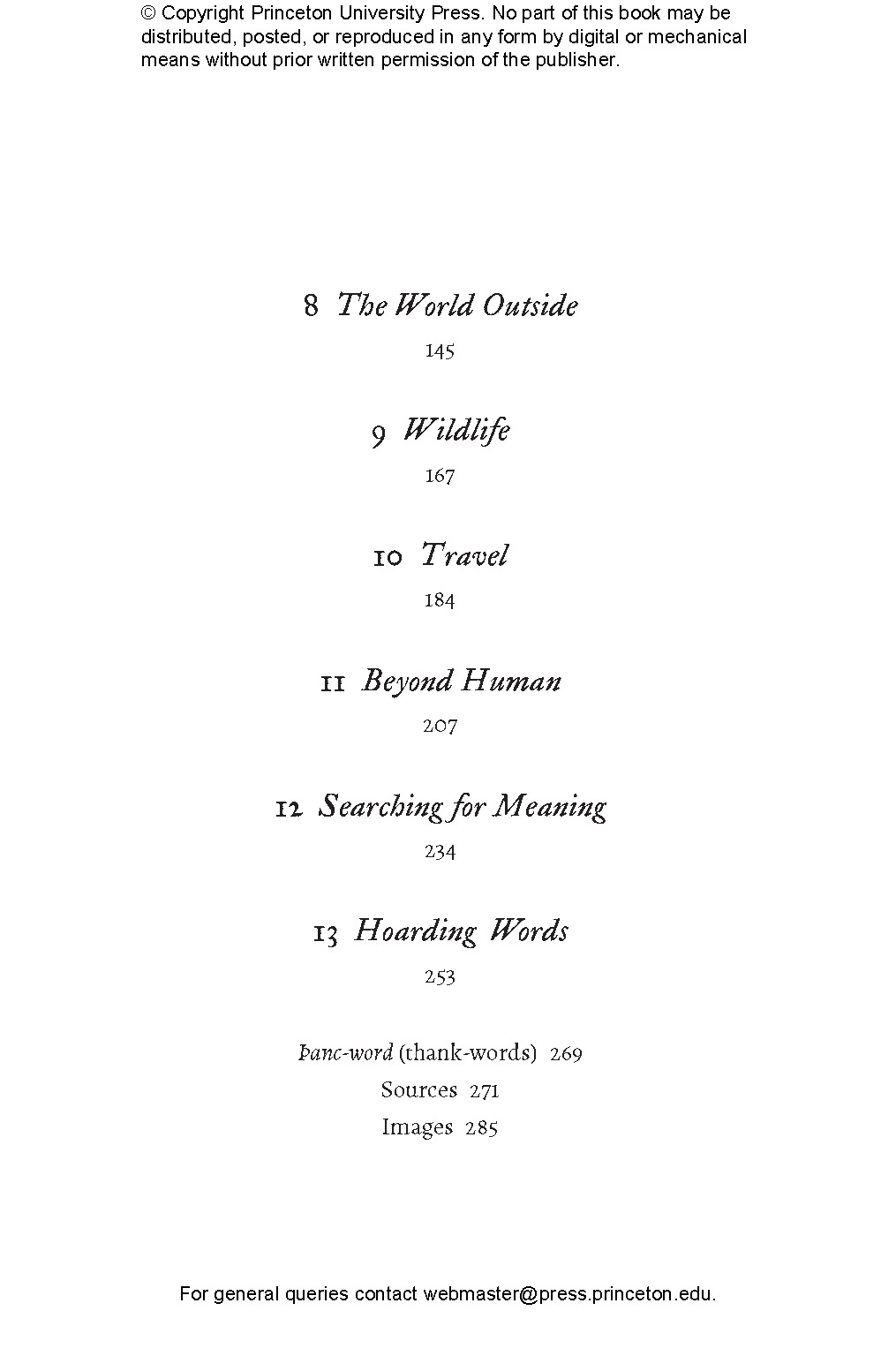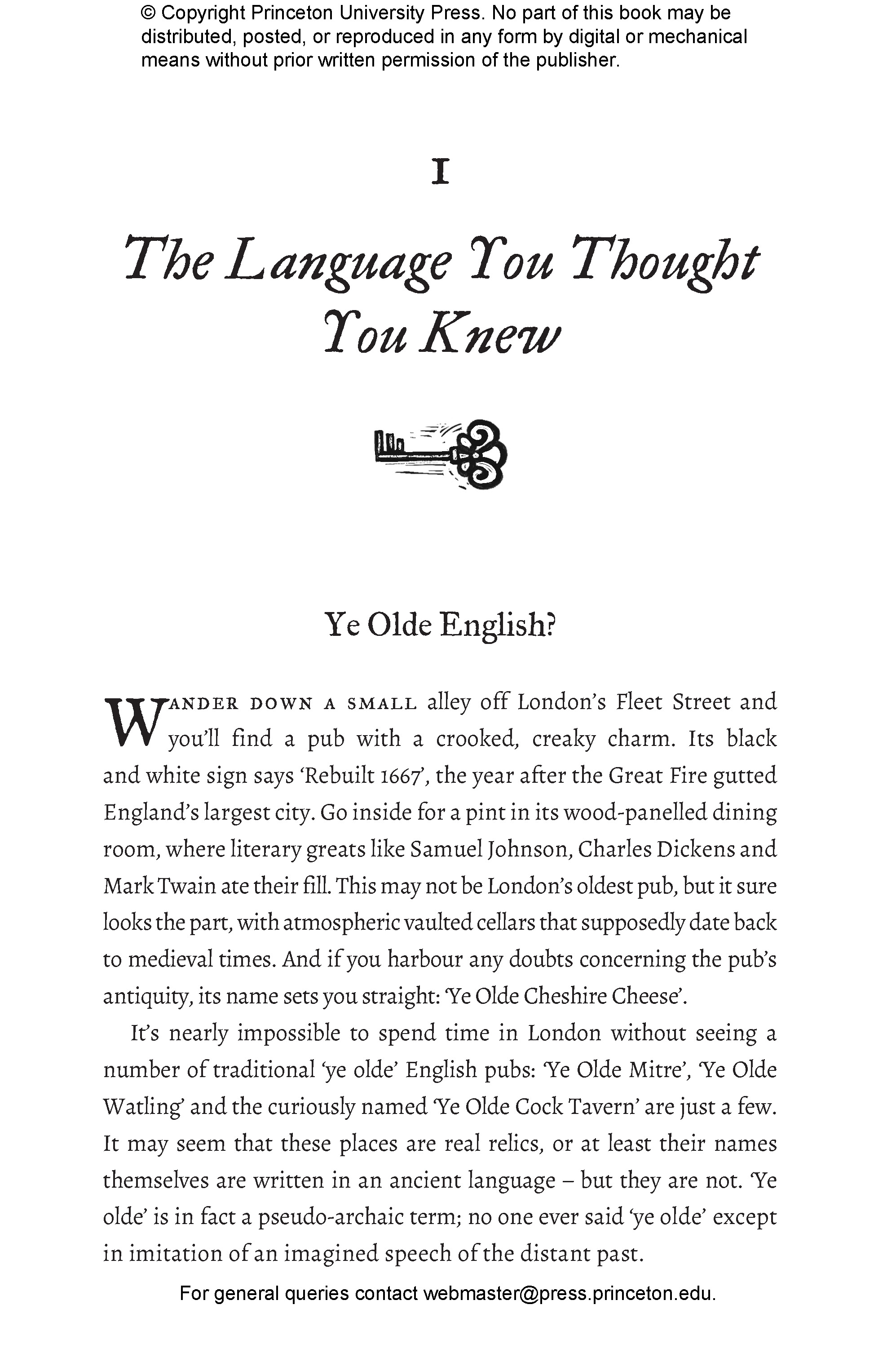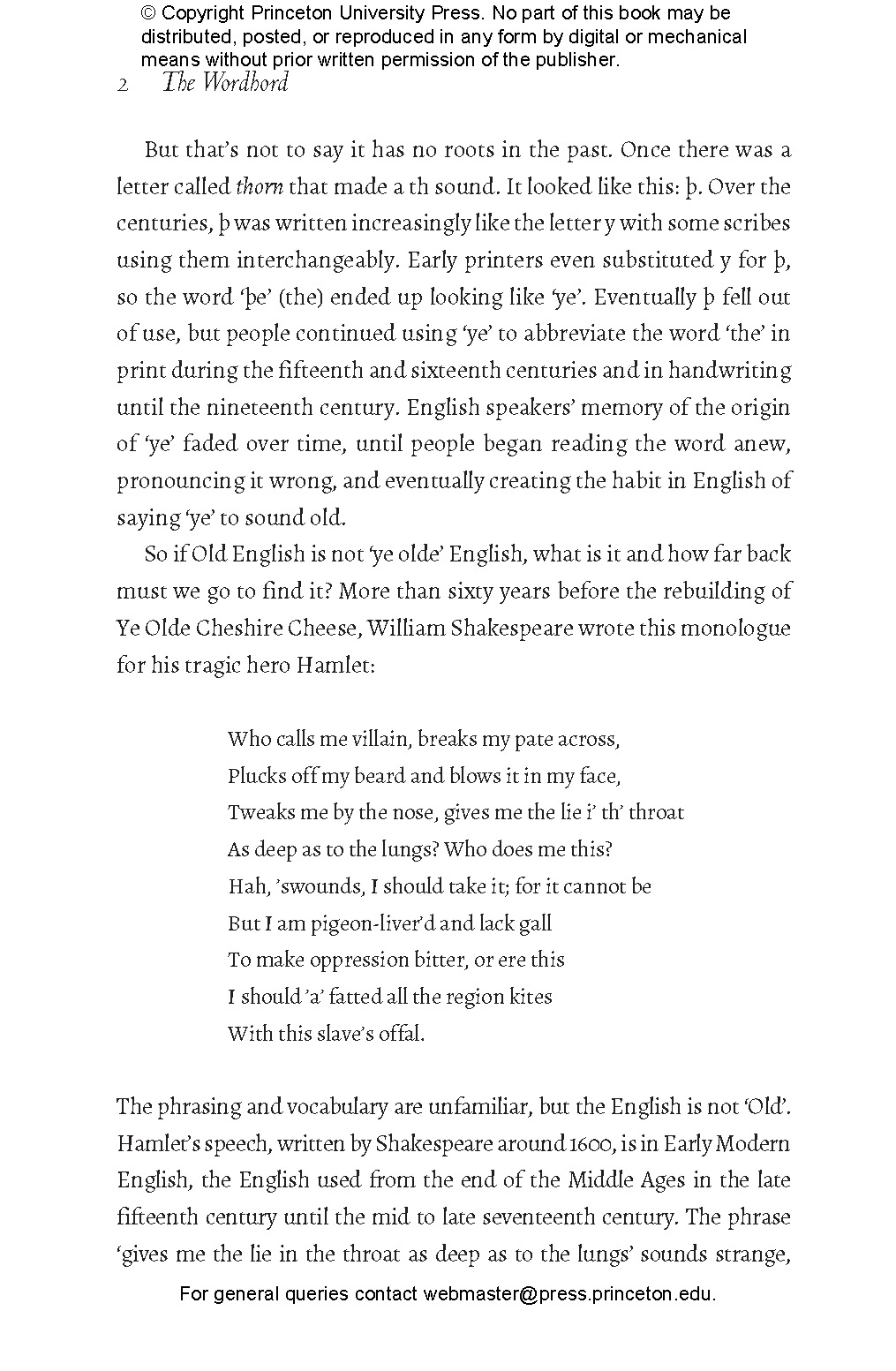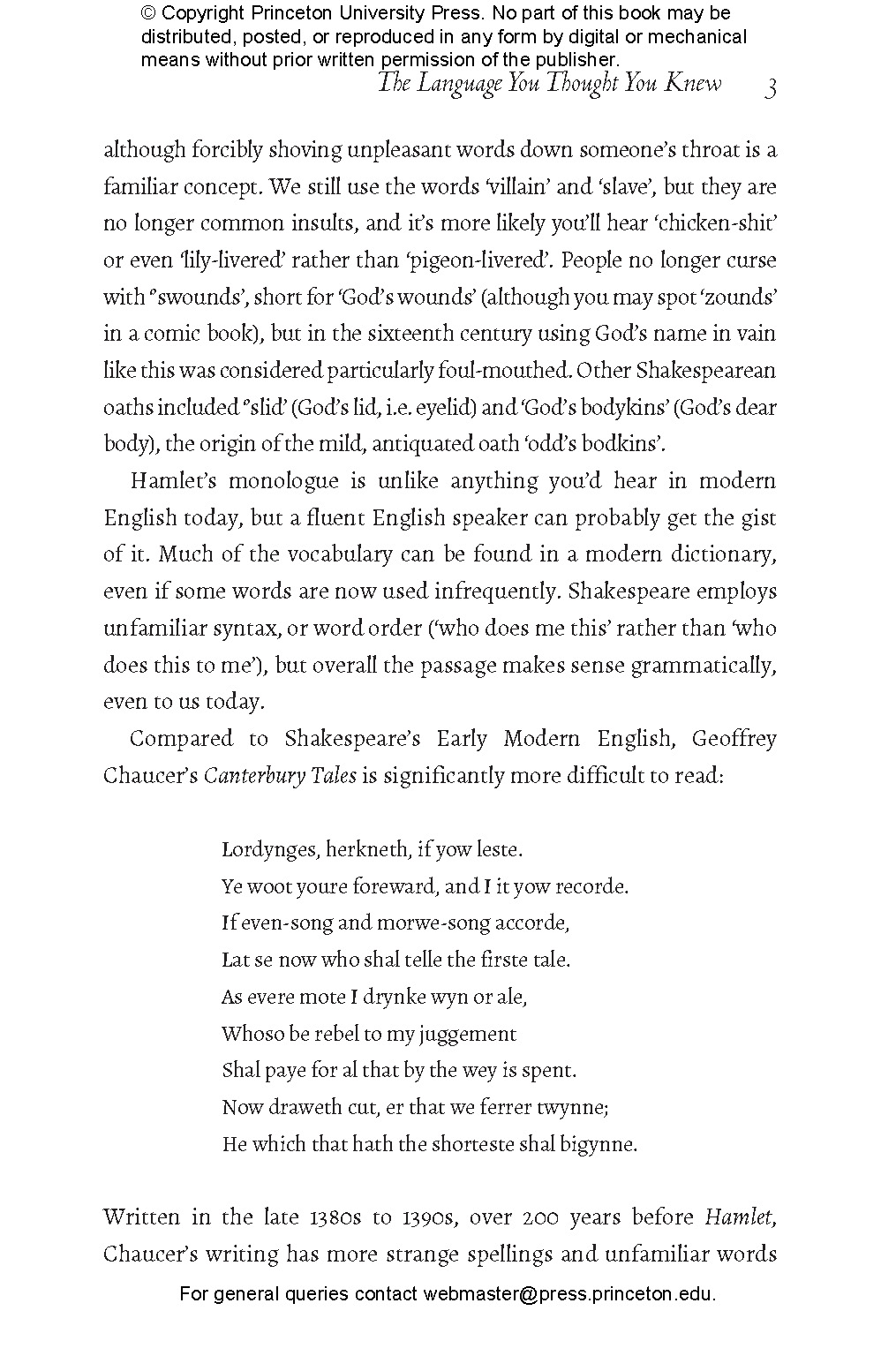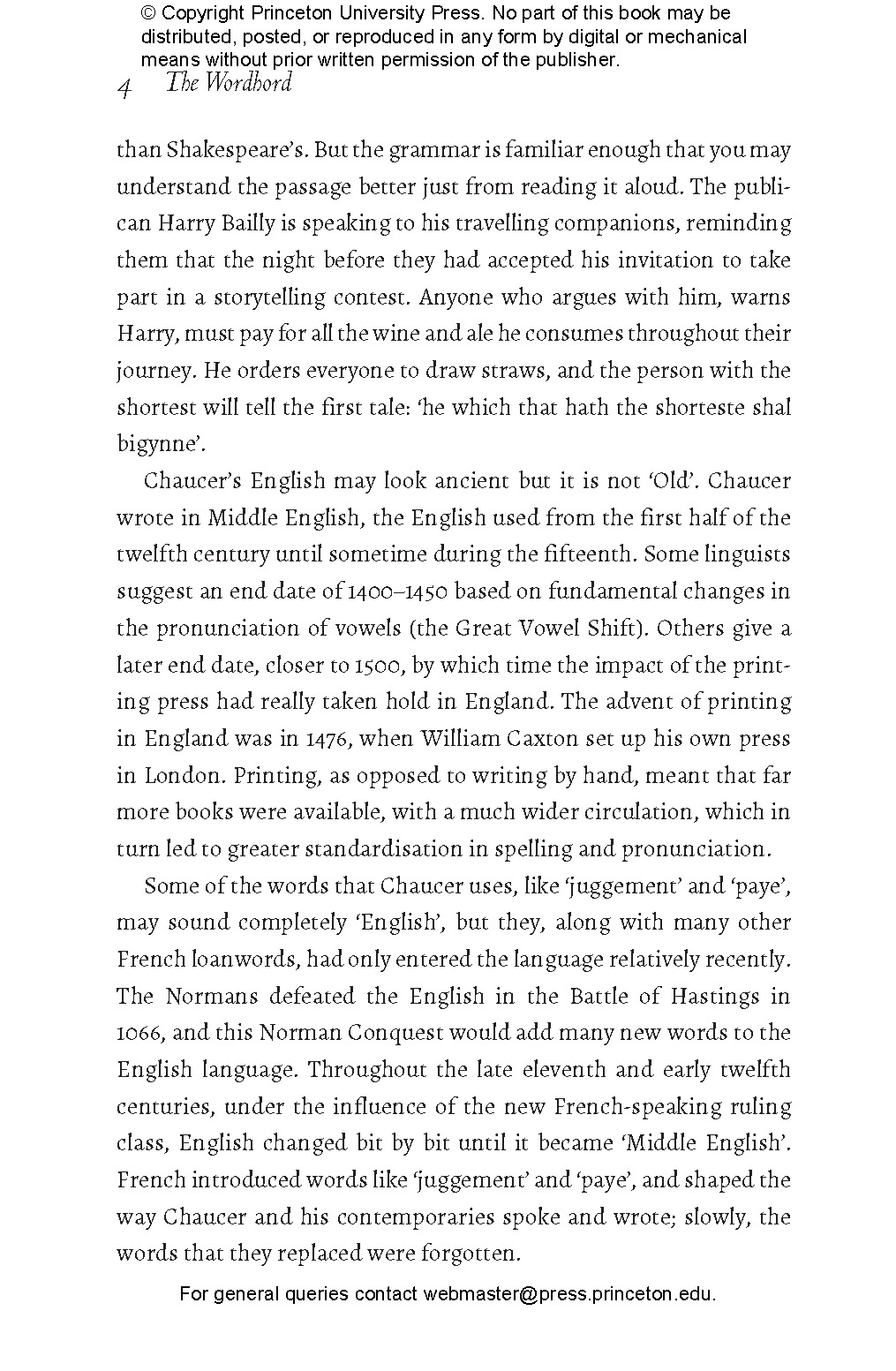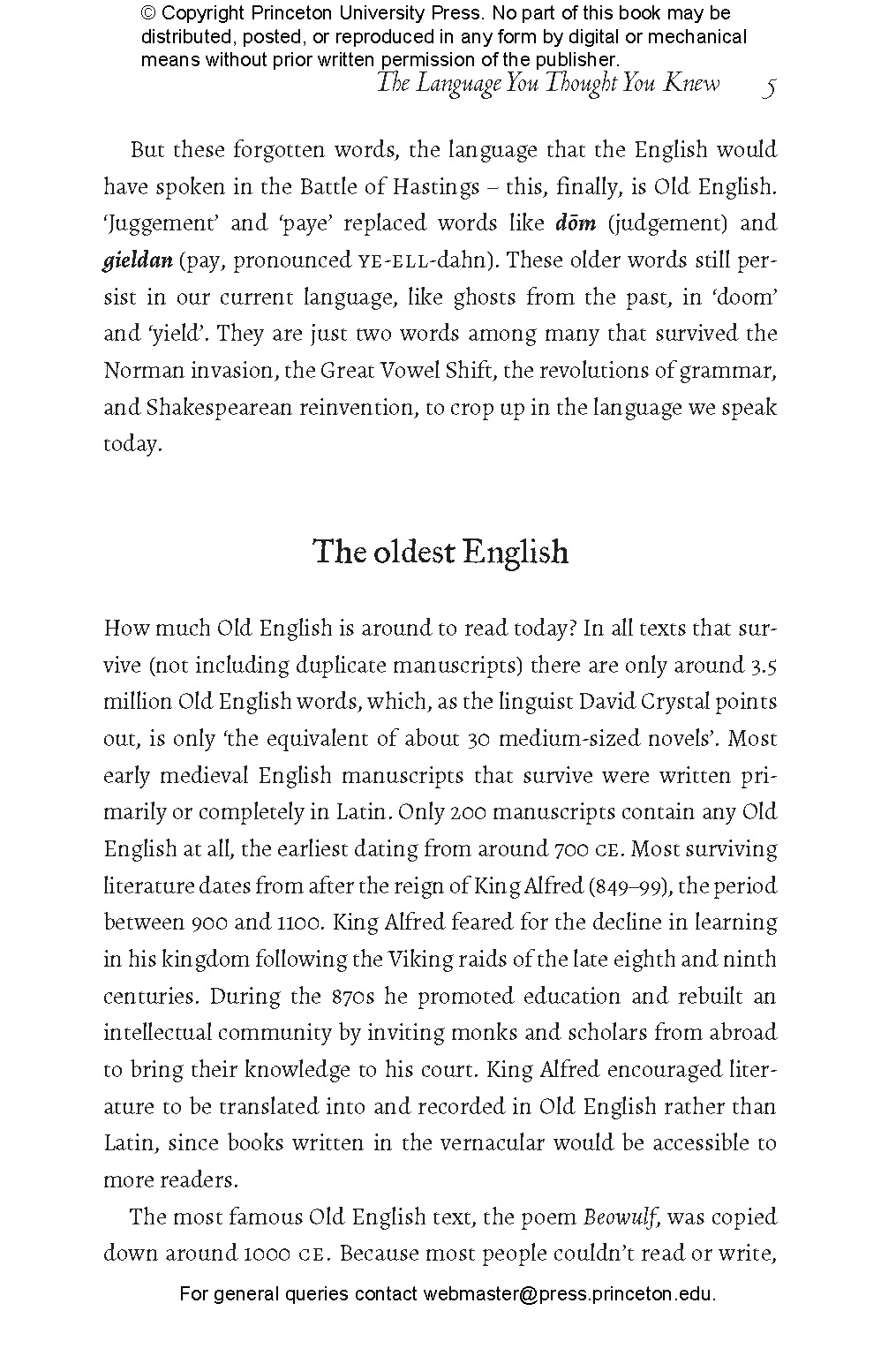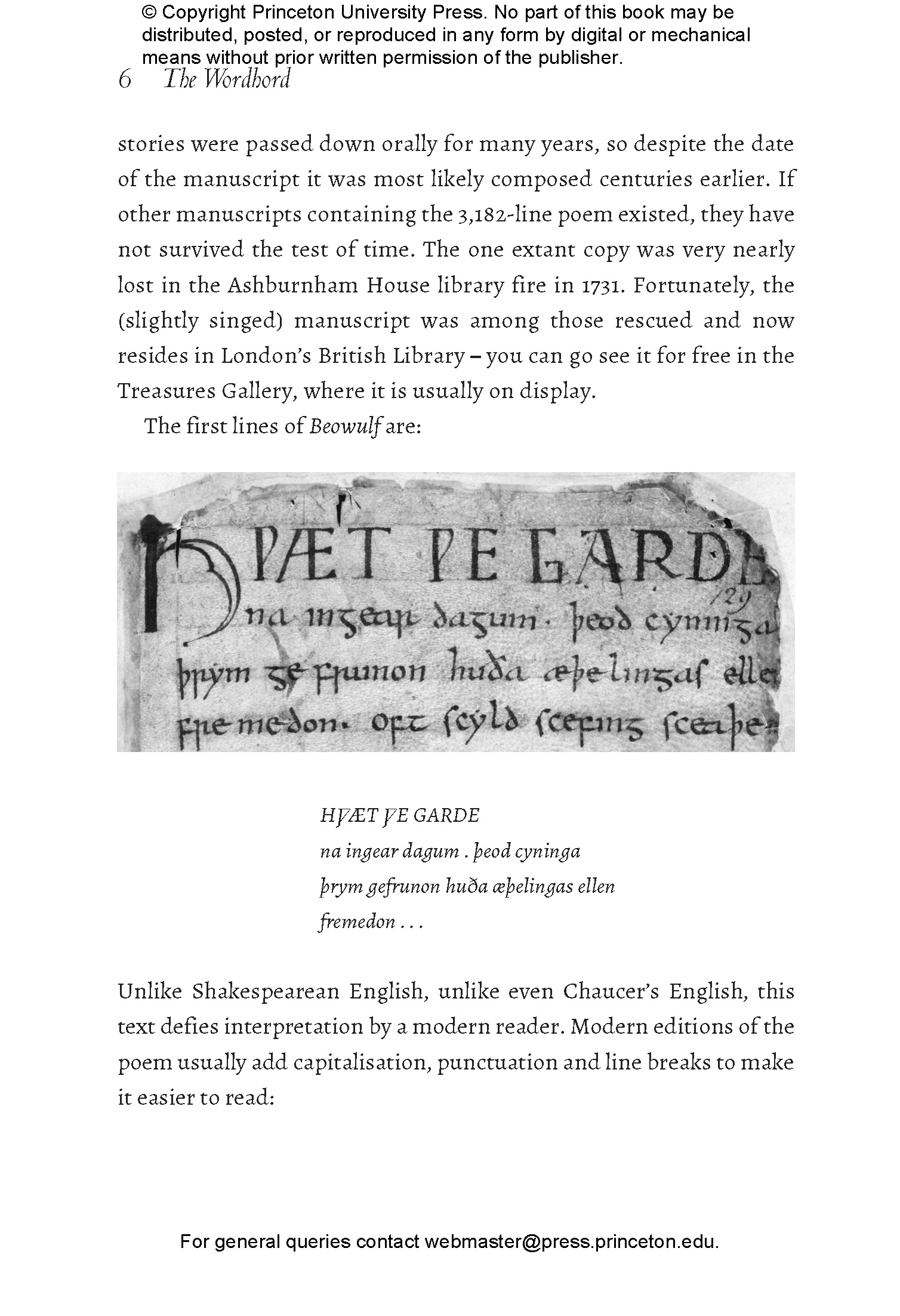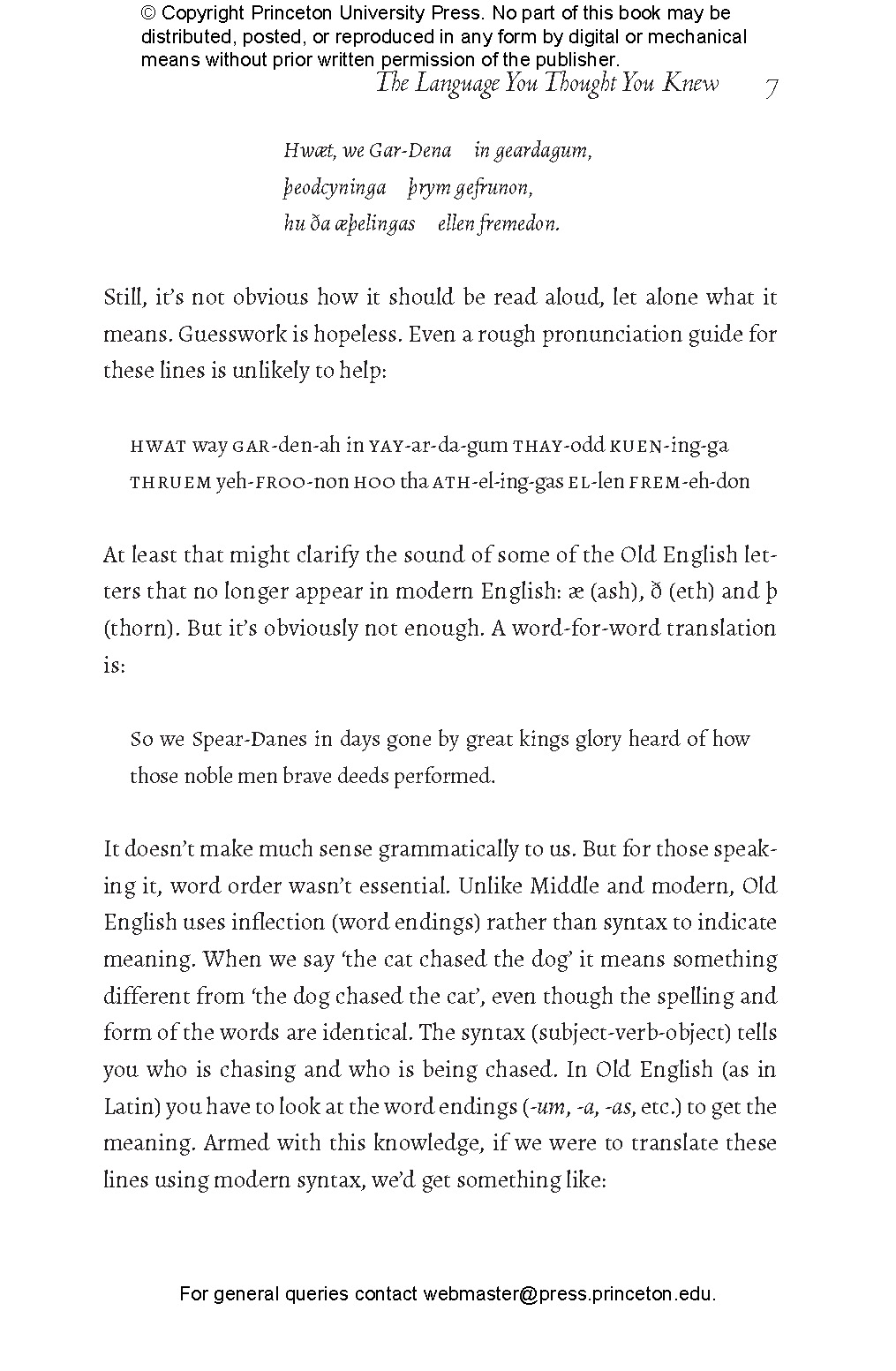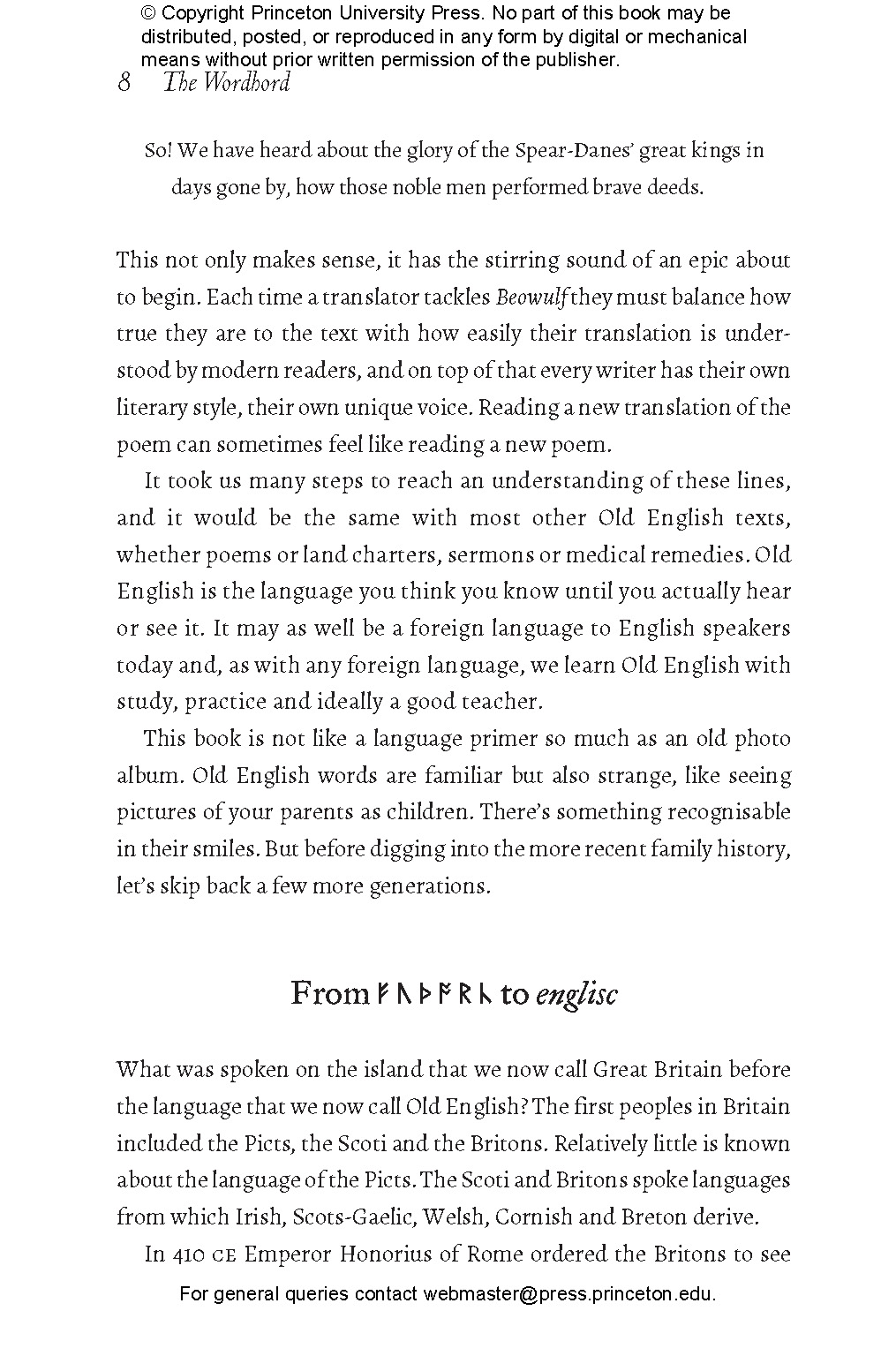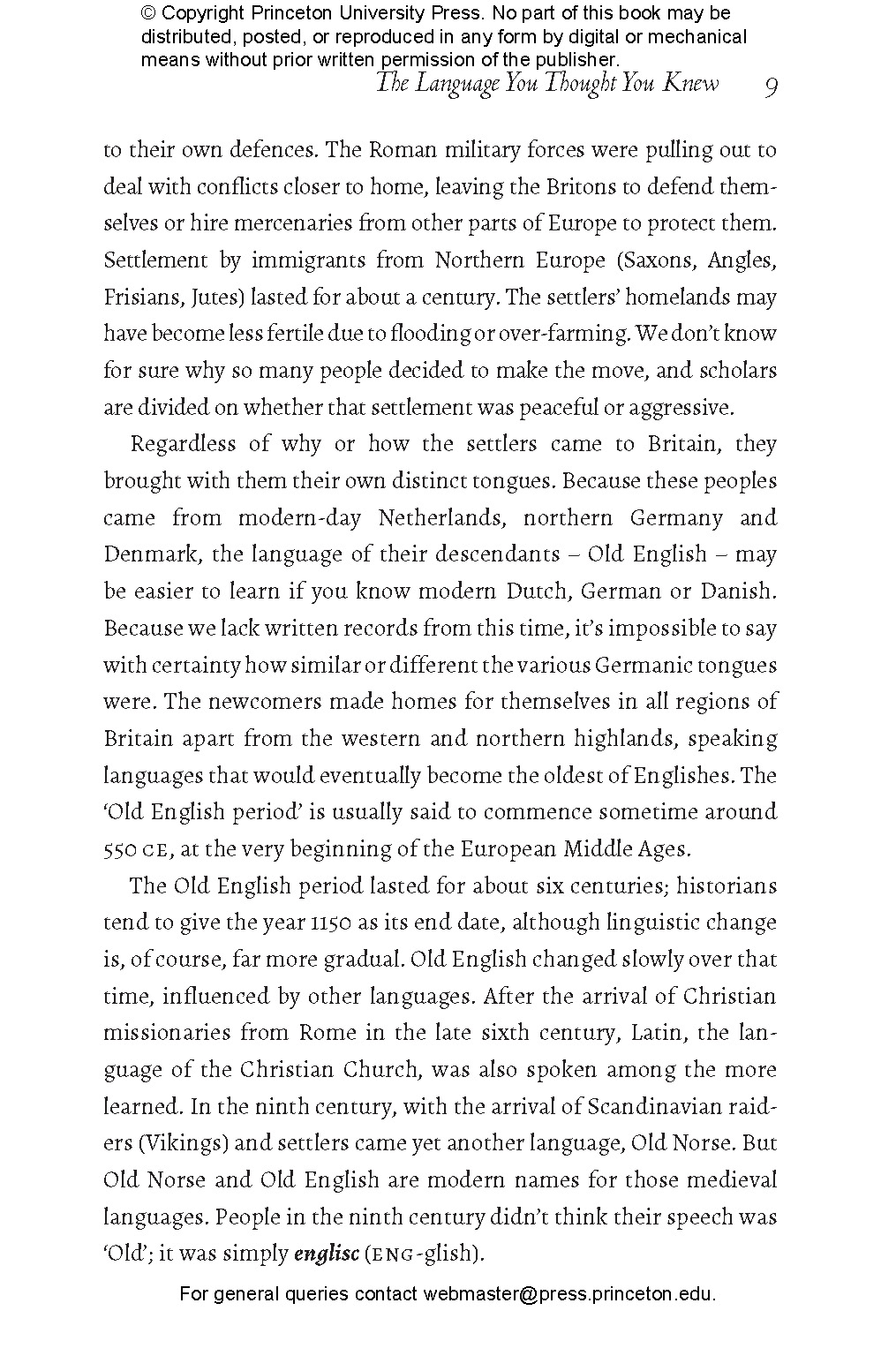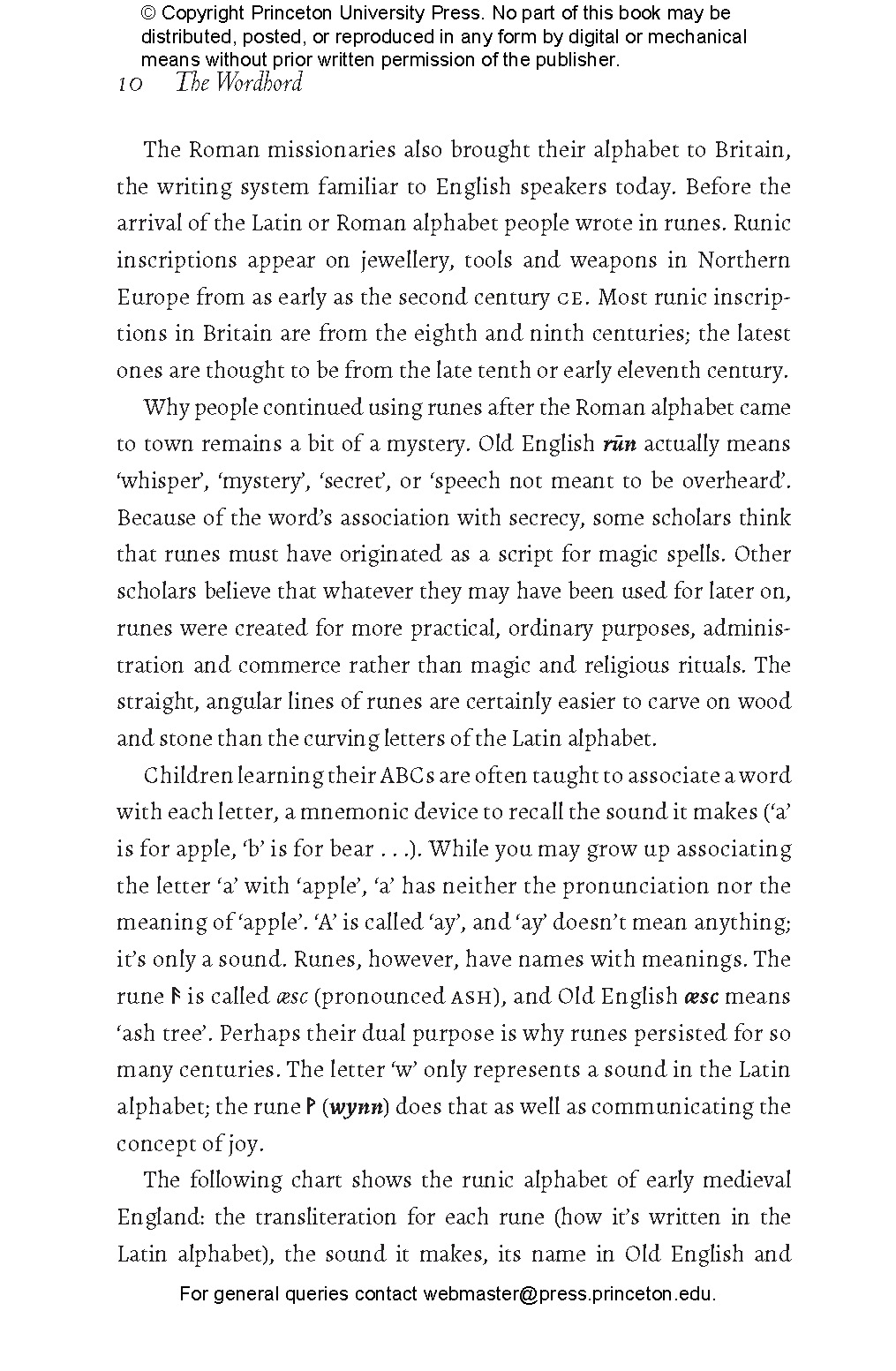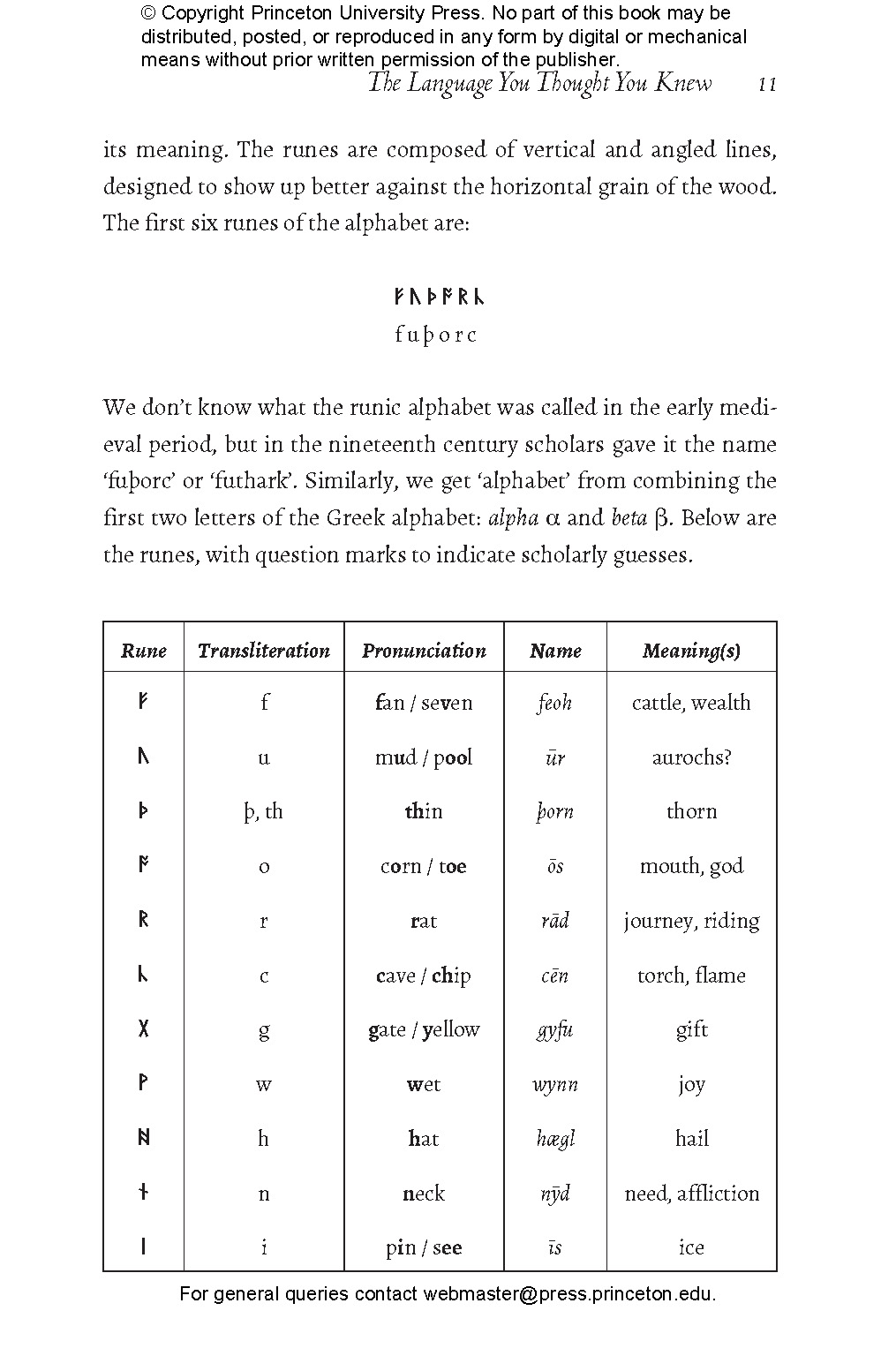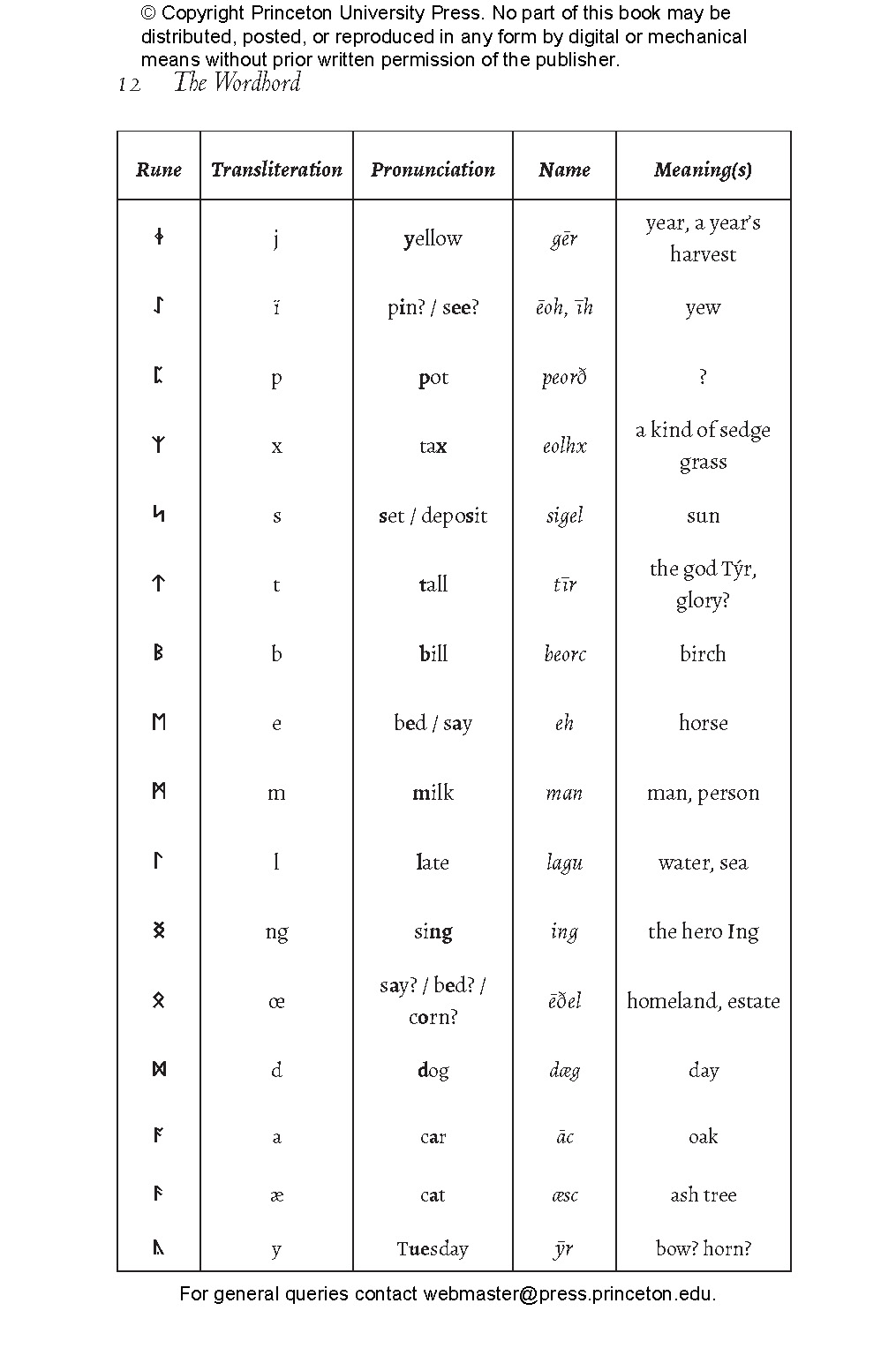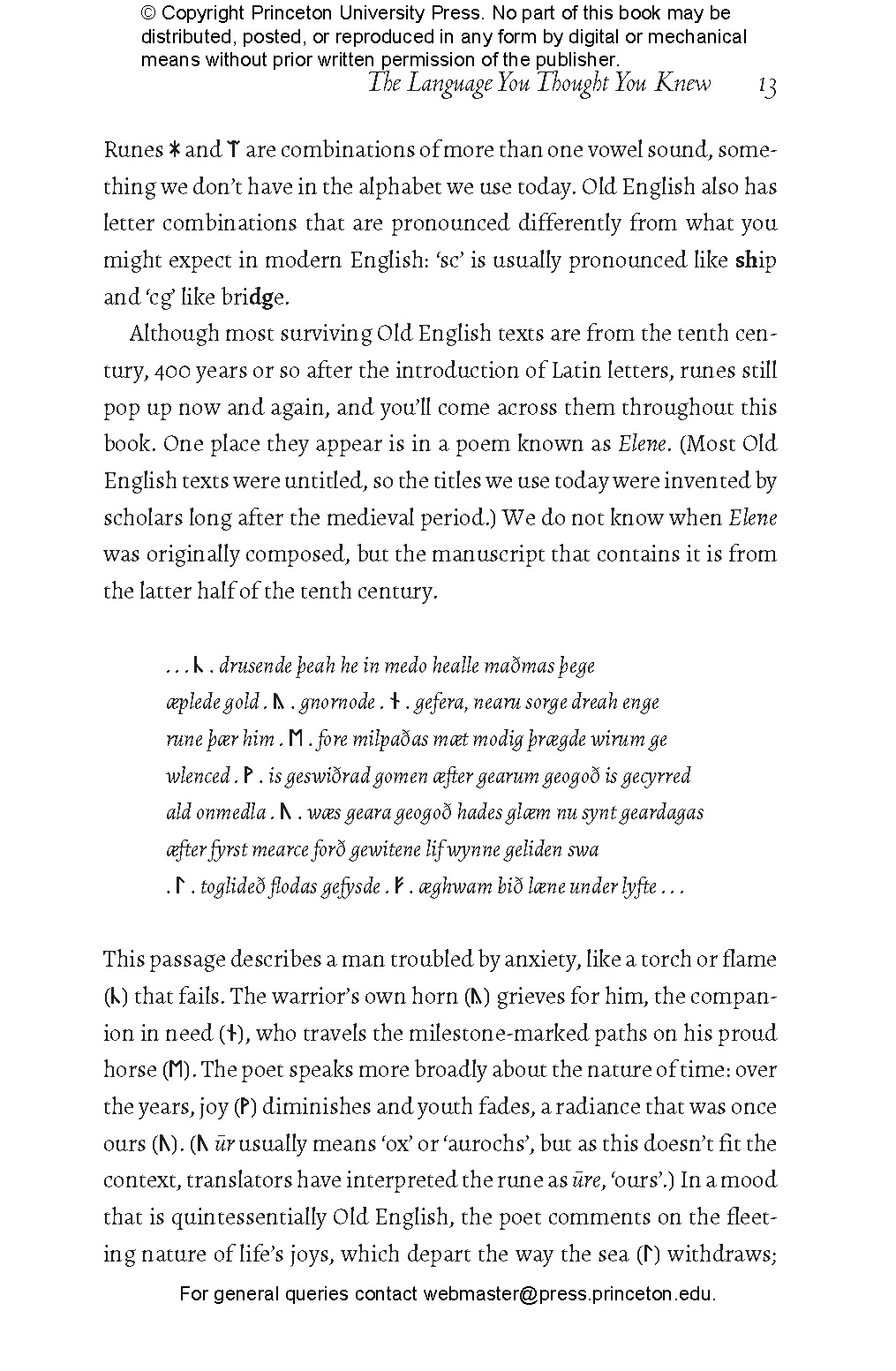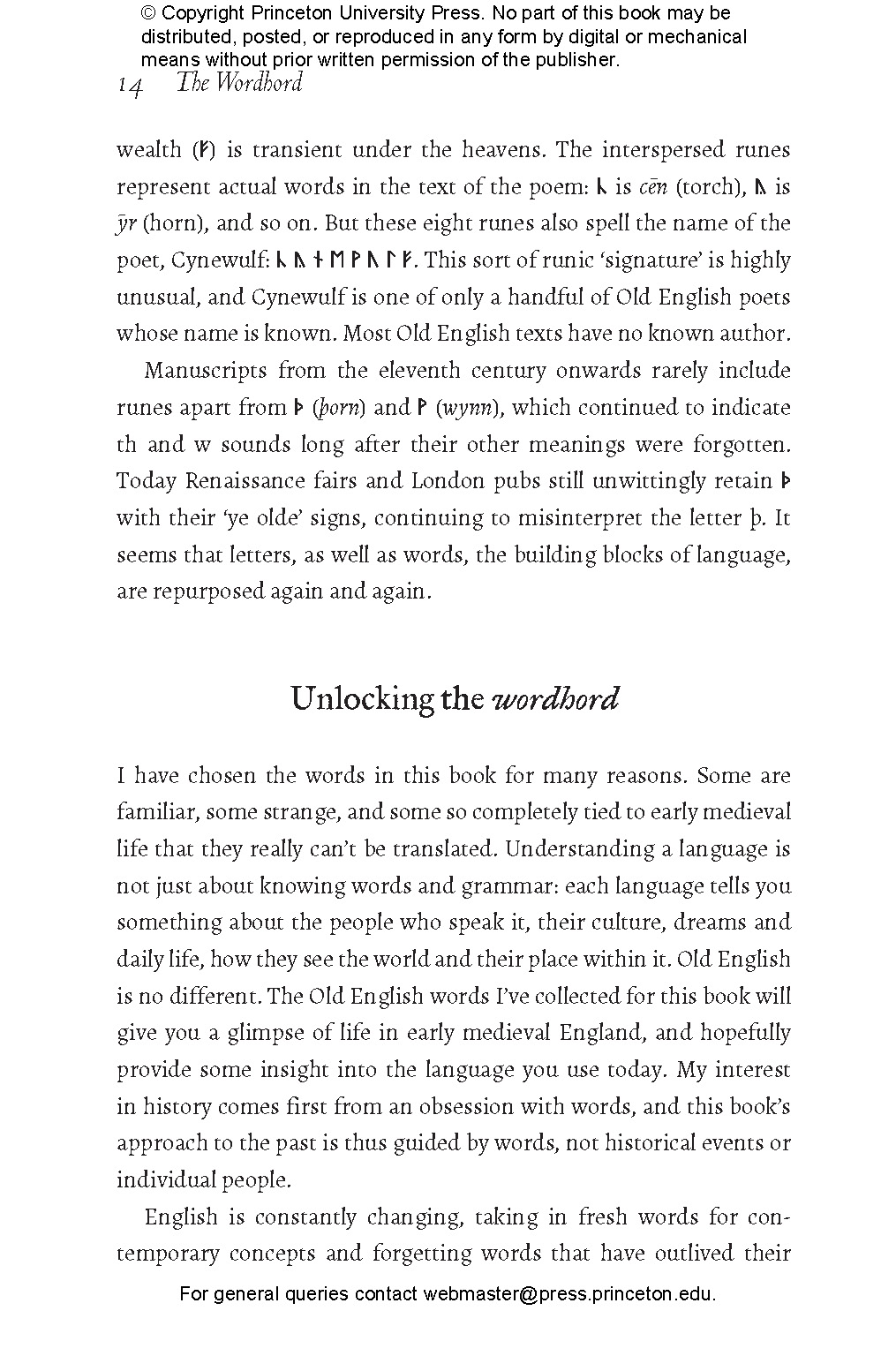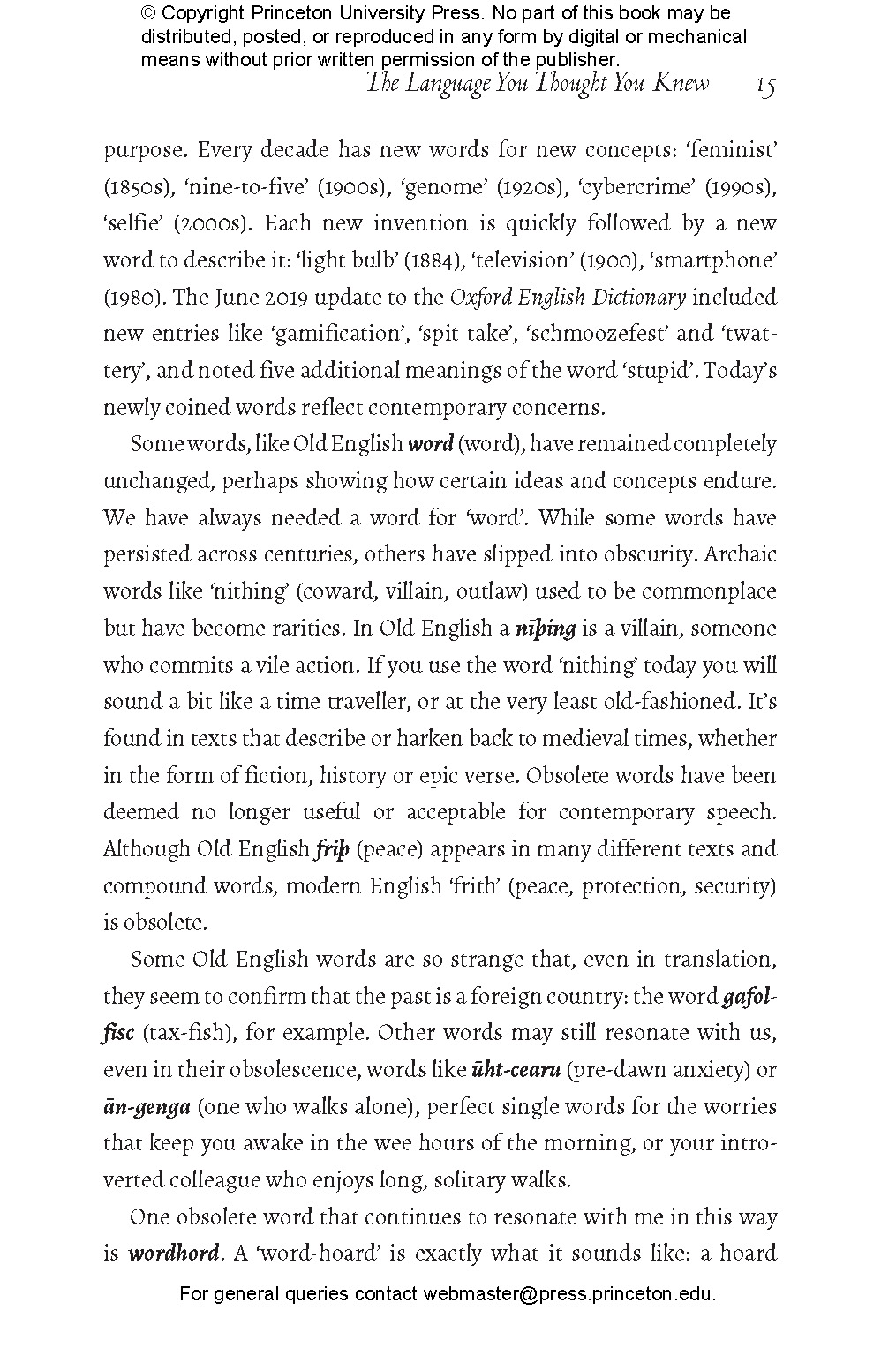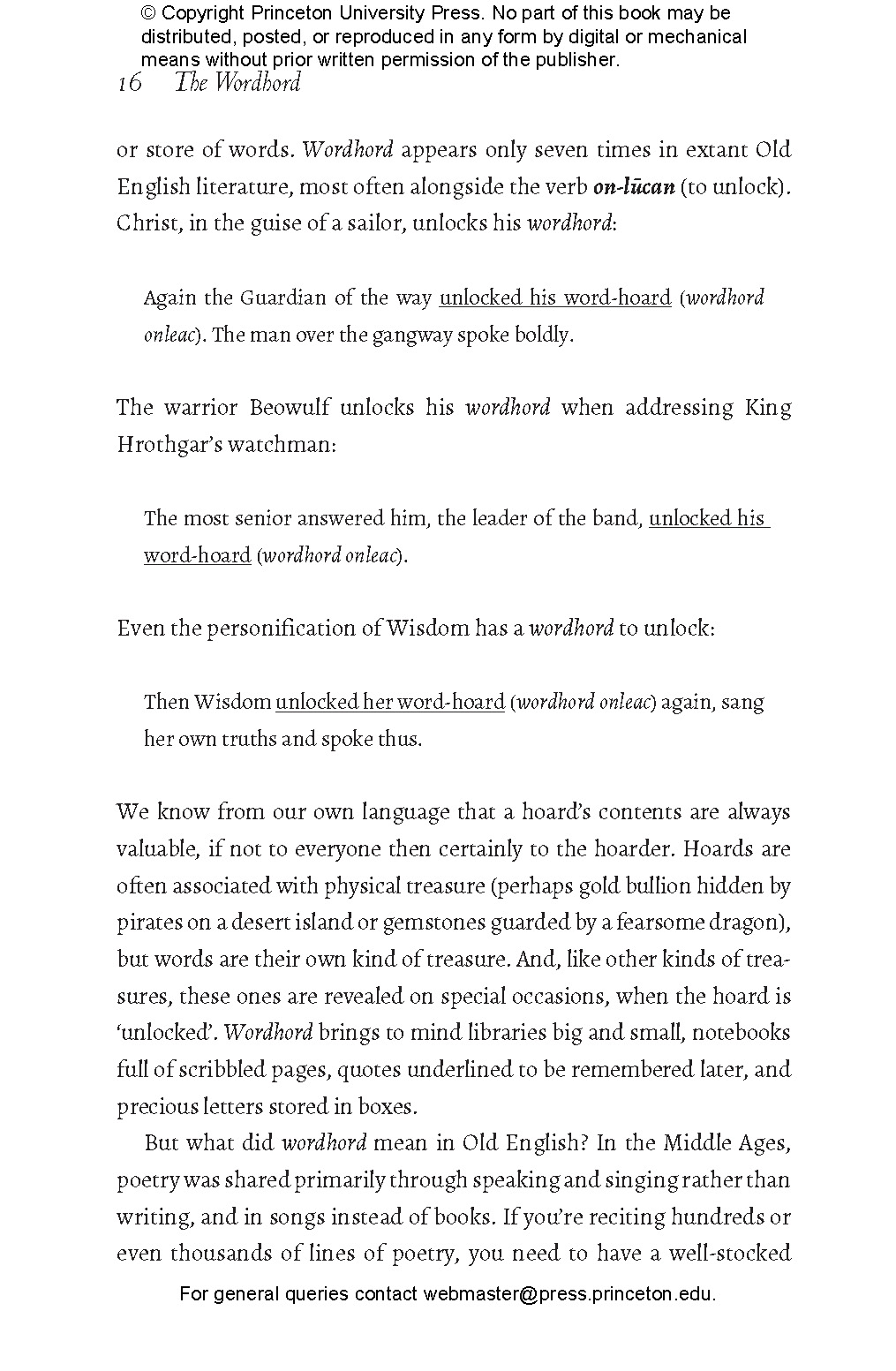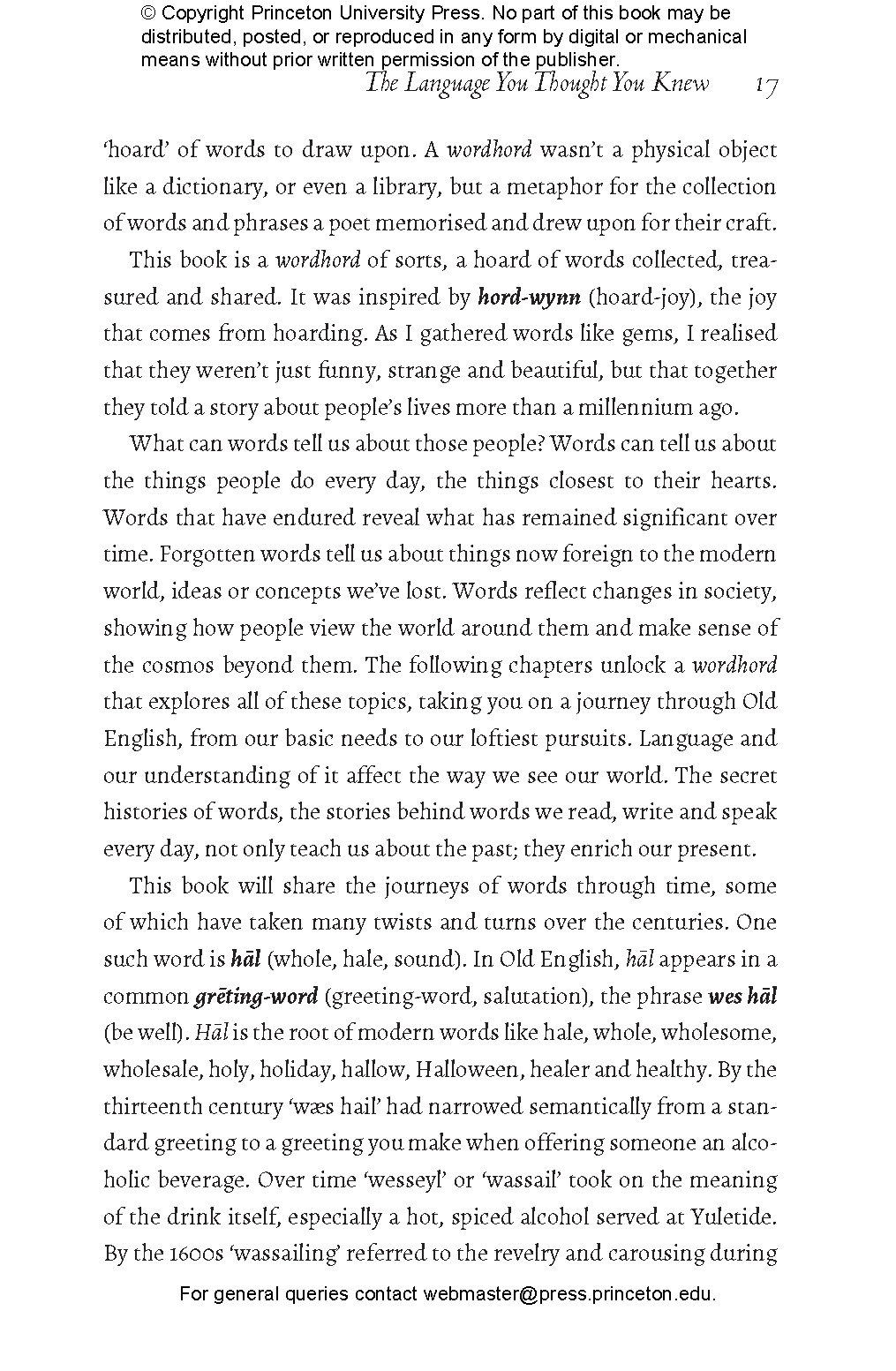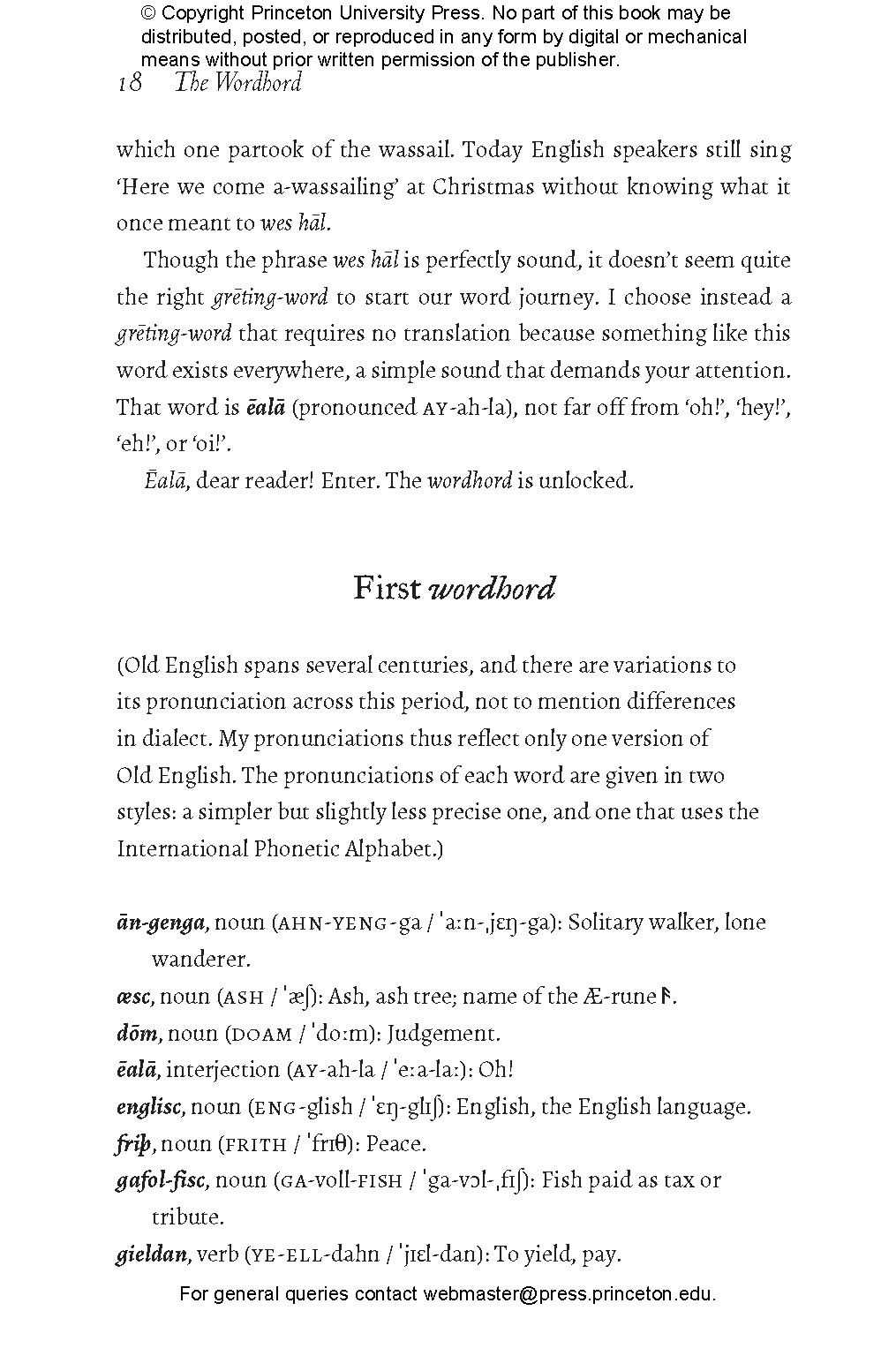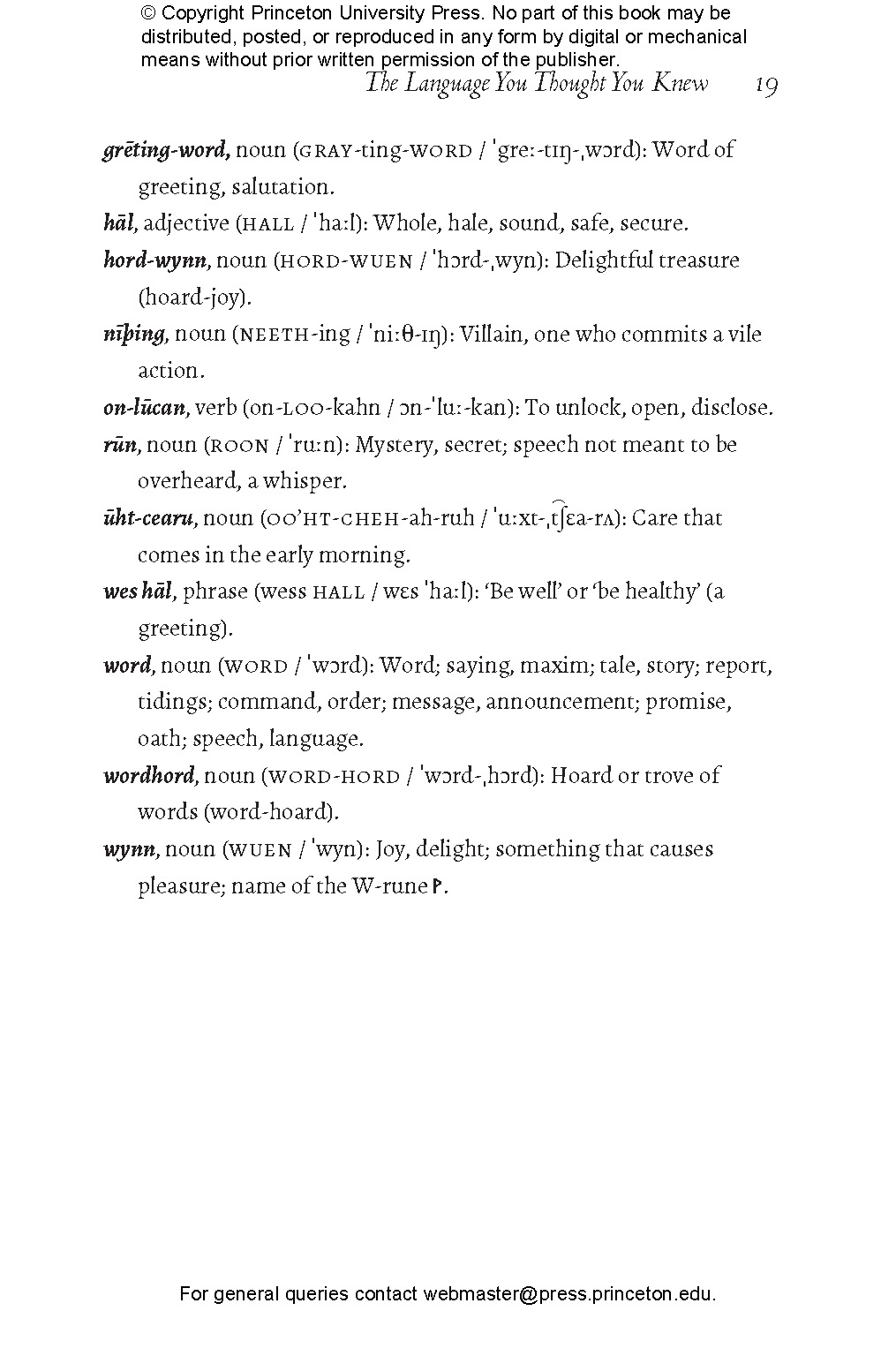Old English is the language you think you know until you actually hear or see it. Unlike Shakespearean English or even Chaucer’s Middle English, Old English—the language of Beowulf—defies comprehension by untrained modern readers. Used throughout much of Britain more than a thousand years ago, it is rich with words that haven’t changed (like word), others that are unrecognizable (such as neorxnawang, or paradise), and some that are mystifying even in translation (gafol-fisc, or tax-fish). In this delightful book, Hana Videen gathers a glorious trove of these gems and uses them to illuminate the lives of the earliest English speakers. We discover a world where choking on a bit of bread might prove your guilt, where fiend-ship was as likely as friendship, and where you might grow up to be a laughter-smith.
The Wordhord takes readers on a journey through Old English words and customs related to practical daily activities (eating, drinking, learning, working); relationships and entertainment; health and the body, mind, and soul; the natural world (animals, plants, and weather); locations and travel (the source of some of the most evocative words in Old English); mortality, religion, and fate; and the imagination and storytelling. Each chapter ends with its own “wordhord”—a list of its Old English terms, with definitions and pronunciations.
Entertaining and enlightening, The Wordhord reveals the magical roots of the language you’re reading right now: you’ll never look at—or speak—English in the same way again.
Awards and Recognition
- A Choice Outstanding Academic Title of the Year
"A marvelous book."—Neil Gaiman
"Videen is both a passionate medievalist and a relaxed, lucid writer; the pleasure she takes in her subject is infectious. . . . There are enough literary snippets here to suggest why Old English has enchanted so many authors."—Henry Hitchings, Wall Street Journal
"A wonderful, very funny look at what the vocabulary of Old English reveals about the culture of the people who spoke it more than 1,000 years ago."—Melissa Mohr, Christian Science Monitor
"A wonderful book that blends linguistics with a survey of everyday life in early Medieval England. If you want to know why music was known as �����-����æ�ڳ�, what was meant by sawel-dreor—‘soul blood’—or the origins of our days of the week, then this is for you. It constitutes a veritable leornung-hus, or ‘learning house.’"—Tom Holland, BBC History Magazine
"Videen reminds us that studying the Old English language still provides plenty of insights. Only 3.5 million words of Old English survive today—roughly thirty novels, to put it into stark perspective—but these words reveal what life might have been like for people in early medieval England, what mattered to them, what they felt, how they occupied their time and how they situated themselves in the world around them. With this book Videen proves herself to be a gifted scop (storyteller) and an excellent guide to this vanished time."—Hetta Howes, Times Literary Supplement
"Delightful. . . . A classy gift to the commonly word-drunk."—Steven Poole, The Guardian
"When the term ‘wordhord’ appears in Old English literature, it is usually paired with ‘unlock’—which is exactly what this delightful book does. It unlocks the 1000-year-old treasure trove of Old English words that inflect our language and understanding of the world."—Cameron Woodhead and Fiona Capp, Sydney Morning Herald
"Eminently giftable. . . . A book to be dipped in and out of for the riddles and enjoyable factoids."—James Marriott, The Times (London)
"A very accessible, almost conversational book. . . . [The Wordhord] gives you the chance to roll these words around in your mouth and give you a really delicious taste of the language and the culture of that time."—Martha Barnette, A Way with Words
"A captivating piece of work. . . . Videen’s work also provides an excellent illustration of how a language simultaneously shapes society and reflects it."—Fiona McQuarrie, PopMatters
"Remarkable. . . . Videen beautifully captures the everyday life of Old English speakers."—Margot Enns, American Conservative
"[An] entertaining linguistic history. . . . Well researched and cannily written, this smart survey makes the old feel new."—Publishers Weekly
"Engaging, conversational, humorous, and full of surprising revelations. . . . A specialized but delightful book that is essential for undergraduate students of linguistics, literature, and history and will appeal to anyone with a yen for history or language."—Library Journal
"The Wordhord provides a fascinating introduction to early medieval England via evocative words. . . . A carefully constructed project that aims to foster a love of words and their history in its readers. . . . Helped along by Videen’s infectious enthusiasm for the difficult, beautiful language that is Old English, I am certain readers will find many of their own favorite words to treasure."—Megan Cavell, Modern Philology
“Splendid. . . . It is the perfect way to be introduced to Old English. There is insight on every page, in a beautifully clear and down-to-earth style, with humorous asides.”—David Crystal, author of The Stories of English
“A rich meditation on words, a thoughtful cultural history, and a delicious box of delights to dip into during stolen moments. I loved this book—and learnt more from it than from any number of solemn language primers. Hana Videen has created a marvel.”—Nicola Griffith, author of Hild
“A wonderful book heaving with linguistic treasure, a joyfully clever exploration of early medieval life.”—Edward Brooke-Hitching, author of The Madman’s Library
